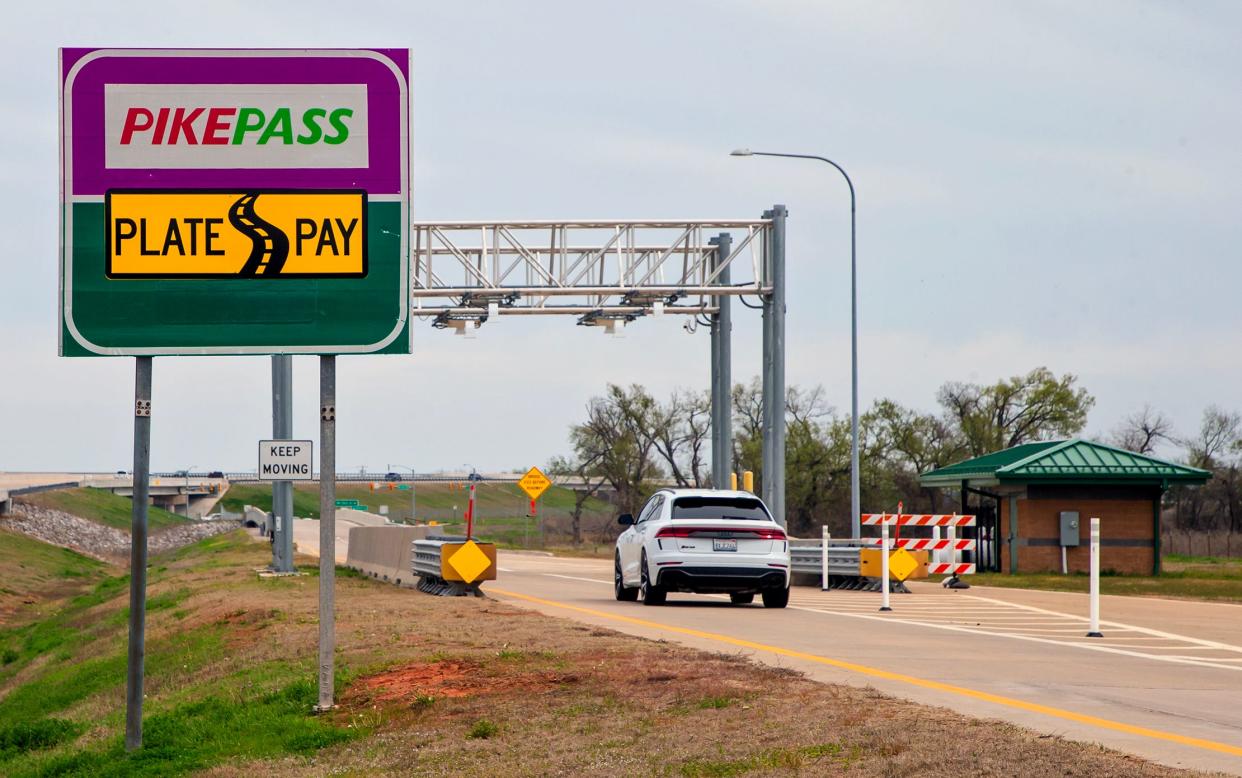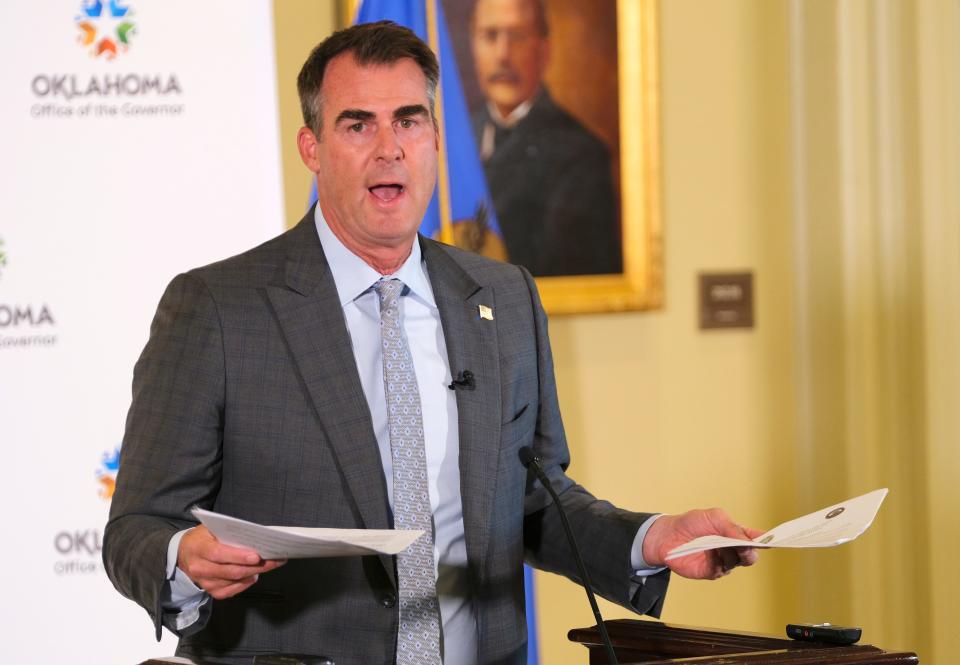Gov. Stitt says new compact guarantees access to tribal tag data. But the state already had the data

- Oops!Something went wrong.Please try again later.
Oklahoma Gov. Kevin Stitt commented for the first time late Monday on his three new agreements with tribal nations, saying the most about one deal in particular: a car tag compact with the Chickasaw Nation.
The compact “ensures Oklahoma law enforcement can confidently identify vehicles on the road and guarantees that our turnpikes can read tribal tags,” the governor said in a statement.
In fact, Oklahoma officials have had information about Chickasaw car tags for a decade. The state issues license plates directly to Chickasaw citizens under the terms of a 2014 agreement. The new compact keeps that arrangement in place.
Still, in his remarks about the new compact, the governor repeated concerns about the state lacking tribal plate data.
“For the safety of all law enforcement, and for tag compacts to be workable, the state must have uninhibited, up-to-date access to driver registration information,” Stitt said, “and this agreement ensures that.”

Abegail Cave, a spokeswoman for the governor, said Stitt was not implying Oklahoma didn't have the registration information before, “but was highlighting the importance of that provision in the compacts.”
“Similar terms providing that level of transparency and information sharing will be essential for all tag compacts,” she said.
Only two other tribes, the Choctaw and Cherokee nations, have car tag compacts with the state.
Oklahoma already has access to tribal plate data from most tribal nations
The Oklahoman found in November that most tribal nations already share plate information with state law enforcement agencies. At least 26 of the 33 tribes with license plates provide that data.
The Chickasaw and Choctaw nations are unique because not only does Oklahoma have their data, but state tag offices issue the tribes’ plates directly to the tribes’ citizens.
That means toll pass readers also can read Chickasaw and Choctaw plates on turnpikes, which rely on a different plate database than the one used by police.
Stitt has faulted other tribes for not turning over plate information to the Oklahoma Turnpike Authority. Many tribal leaders countered that they were never asked to do so before the state launched the toll pass readers.
More: Oklahoma lawmakers told state police to work out tag agreement with tribes — 12 years ago
The dispute intensified in November, after state troopers cited two western Oklahoma drivers with current tribal plates. They claimed the drivers lived outside the jurisdiction of the tribal government that issued the plate, and ticketed them for failing to pay state vehicle registration fees.
The governor has denied directing the Oklahoma Highway Patrol to begin writing such tickets. The two tickets confirmed by The Oklahoman were later dropped, although it remains unclear how many other cases exist across the state.
In addition to the new plate compact, Stitt signed tobacco tax compacts with the Chickasaw Nation and the Apache Tribe earlier this month. Under those agreements, Oklahoma and each tribe equally divide the tax money from tobacco sales on tribal land.
“While I’m glad we could come to an agreement on these compacts, I still believe there is work to be done to ensure we are not further eroding Oklahoma’s revenue base in order to continue to provide public services to people across the state,” Stitt said, without providing examples.
Latest on Oklahoma tribal tags: Some tickets dropped, but bigger questions remain
His office said the compacts were negotiated under the governor’s exclusive authority, an apparent reference to his ongoing legal fight with lawmakers. The Legislature voted in July to renew all state-tribal tobacco tax and car tag compacts through 2024 so both sides had extra time to negotiate. Stitt objected to the extensions and sued to stop them. The court hasn’t ruled.
Without a decision, the short-term renewals took effect at the start of the year. Cave said the governor is discussing long-term deals with several other tribes, but declined to provide specifics.
In his statement Monday, Stitt said he welcomed other Oklahoma tribal leaders “to engage with my office in the compacting process.”
Molly Young covers Indigenous affairs. Reach her at mollyyoung@gannett.com or 405-347-3534.
This article originally appeared on Oklahoman: Tribal tag compact did not change Oklahoma's ability to access data

